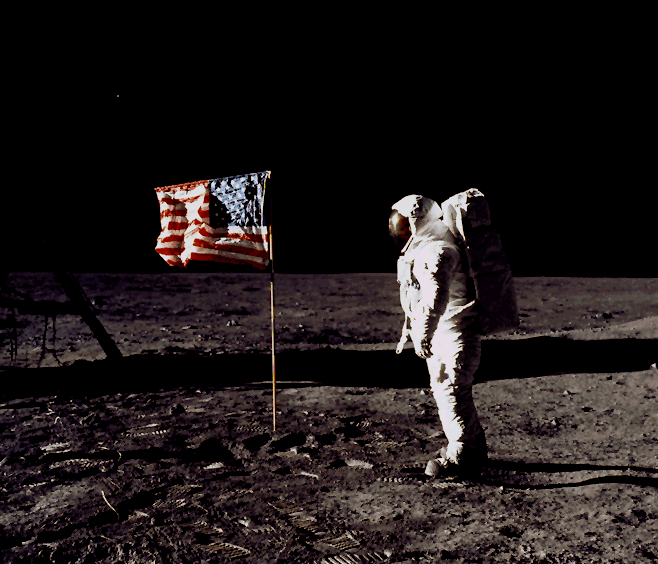
Since the day humans started exploring the moon, the lunar surface has been loaded with all sort of remains left behind by various space missions. Humans have left behind a lot of poop on the surface. Even though it seems bizarre, space experts have a justification to use the moon as a human toilet.
For example, Apollo astronauts were asked to bring back moon rocks to the earth for further experiments. However, the weight of all these moon rocks had to be balanced out in the spacecraft by leaving some unwanted materials behind. In order to achieve this optimum weight, astronauts in the mission left out 2 cameras, 12 pairs of boots, a telescope and two golf balls.
Astronauts later dumped 96 bags of human wastes filled with feces and urine on the lunar surface. So, what happened to the microorganisms in human poop? Did they survive in the lunar surface?
In a recent article written for BBC's Science Focus magazine, Alastair Gunn, an astrophysics professor revealed that the feces dumped on the lunar surface could not have impacted the moon's environment.
"Any microorganisms present in human waste could not have grown under the harsh conditions of the lunar surface. It is possible, however, that some could have survived for a time as dormant, inactive spores. So, after 50 years on the lunar surface the human waste, which is now probably just bags of dust, may contain important information on the survival of microorganisms in space," wrote Alastair Gunn.
Gunn also revealed that upcoming lunar missions should check whether these microorganisms which were dumped on the lunar surface years ago had undergone any kind of mutations.
"Astrobiologists would like to see if any of those microorganisms have undergone any genetic mutations due to the harsh lunar environment, or have indeed survived in a dormant state. They hope one day that private companies may eventually return this human waste for study," added Gunn.









